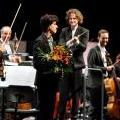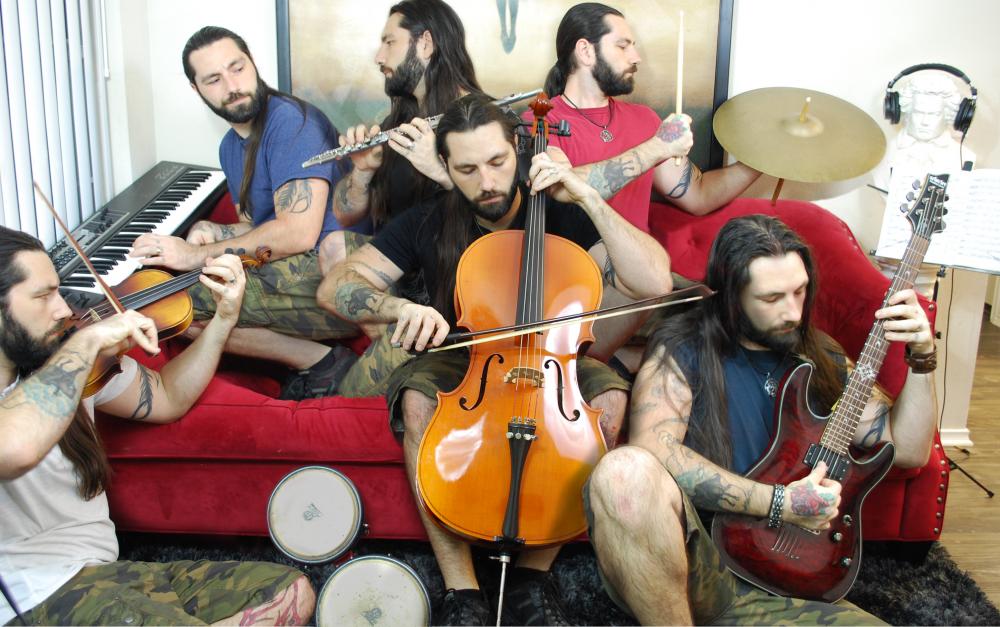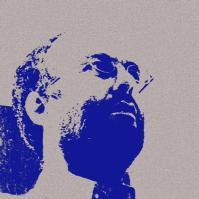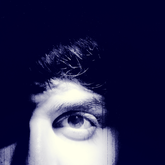Search the Community
Showing results for tags 'composition'.
-
EDIT: This survey is now closed, thanks to all who took part. I may publish the results in February, and if so, I will add a link here later. Hi folks - first post, so apologies to the mods if this type of post is not allowed! I am a composition student at the University of Surrey and I am throwing around a survey across the internet to gather some data on how musicians write music with music notation software - this forum seemed very lively, so I'm very interested in your thoughts. If you are someone that composes/arranges music with music notation software (Sibelius/Finale/MuseScore/etc.) I would be extremely grateful if you could spare 10 minutes to fill out this survey: https://freeonlinesurveys.com/s/eZTxmoaK At the end, there will be two participants chosen in a random raffle that will receive £15 via PayPal. The survey will close in 7 days (6th January 2018). If you have any questions/comments/discussion - fire away! Thank you and have a Happy New Year!
-
- composition
- composing
-
(and 5 more)
Tagged with:
-
Hello? I am Hemio who studies composition as a hobby in Korea. I am not good at English so I can hardly communicate deeply, but I will try. This is a piano music that represents the Egyptian goddess.
- 4 replies
-
- piano solo
- composition
-
(and 1 more)
Tagged with:
-
Hello I am a french pianist composer and new on this forum. Here is a link to my first piano composition album, that I recorded in a studio in France I Hope you will enjoy it. I called my album "Premières notes", that means "First notes" :) http://premieresnotes.com Sacha MENNY
-
I realized that I tend to layer a lot of things but often have them play through the whole section in whole notes (i. E. Having a Bass and Cello holding the Bass notes) Does anyone know any scores that show examples of creative use of Rythm? I. E. the violins in (I think) Hedwigs Theme seemed really interesting but I bet that I haven't even touched the surface of this topic.
-
DELIAN ACADEMY FOR NEW MUSIC International Academy for Composers & Sound Artists 8 - 17 June 2018 Mykonos, Greece DESCRIPTION The Delian Academy for New Music is an international summer academy for composers and sound artists located on the island of Mykonos, Greece. Curated under the auspices of Georges Aperghis and Grypario Cultural Center, the Academy derives its name from the nearby island of Delos, the birthplace of god Apollo, and a UNESCO world heritage site. Unlike top-down organization programs, our Academy is a participant-driven meeting where attendees co-decide and create the agenda for a series of symposia, workshops, and concerts with the guidance of faculty and staff. The 2018 edition will take place from 8 June to 17 June in Grypario Cultural Center of Mykonos. Participating composers will have the chance to take part in masterclasses, presentations, workshops and have their music performed by our ensembles in residence. The main language of the Academy will be English. Additional languages may be used in private masterclasses. WHO WE ARE GEORGES APERGHIS, Honorary President FACULTY FOR 2018: MICHAEL FINNISSY, Composition ELAINIE LILLIOS, Electroacoustic Composition DIMITRI PAPAGEORGIOU, Composition ALEXANDROS SPYROU, Artistic Director ENSEMBLES IN RESIDENCE FOR 2018: TRIO ACCANTO www.trio-accanto.com ZONE EXPÉRIMENTALE www.zoneexperimentale.ch PARALLEL PROGRAMS -Electroacoustic Workshop with Elainie Lillios Sound in Nature – Sound in Space The 2018 Delian Academy electroacoustic workshop will explore sound in nature and space, and how these elements can be creatively expressed in both fixed media and mixed (instrument/electronics) composition. Participants will investigate the varied and beautiful soundscape environments on Mykonos and surrounding islands, capturing its sounds and sceneries through field recording activities. We will also engage with sound environments through Deep Listening exercises, including soundwalks and sound improvisations. Other discussion topics will include electroacoustic techniques, critical listening, sound in space, and electroacoustic literature. -Experimental Collaboration with Guest Artist Jana Luksts -Half-day trip and field recording in Delos APPLY APPLICATION DEADLINE: 15 DECEMBER 2017 Please visit www.delianacademy.com for more information and application form.
-
Instructor: @Monarcheon Writing Requirement: Soundwalk Special Requirement: Compose a general soundwalk A soundwalk is a composition intended to guide a reader along the path you prescribe. These compositions last generally last around 30 minutes to an hour and are intended to be the most sonically engaging possible. Soundwalks are composed as lists of instructions to guide the listener on their journey. Normally, soundwalks are composed with specific locations in mind, but it is more fulfilling and viable to compose general soundwalks, where the instructions should be able to be applied in most places. For example, a normal soundwalk I would compose would have the city I live in, Seattle, in mind while I write instructions, and would mention specific places, like the University campus, or the light rail stations. A general soundwalk would be more likely to include compass directions, indoor vs. outdoor specifications, and times. Here is an abridged example of a normal soundwalk, with the University of Washington in mind: Striking Sounds about the Stevens Loop by Alex Sanchez Remarks: This soundwalk calls for the traversal of stairs. If this is not possible for you, simply enter the stairwell, participate in or simulate some of the activities suggested, then take the elevator to the destination floor, if necessary. “Striking” is both a verb and an adjective; we will treat it both ways. At various points during the soundwalk, you will be asked to strike objects. Also, you will be asked to reflect upon or simulate the sounds you create--and stumble upon--during your walk within the various ambient and sonic environments you encounter. Materials: Carry various objects made of various materials with which to strike other objects found during the walk. Also, if possible, leave behind any delicate electronics so that your backpack becomes a “striking-sack” with which to create “booms” in reverberant stairwells. Your hands are also valuable striking tools! Also, it is recommended to wear socks and (fully to semi-)waterproof, but absorbent shoes. Instructions: For best results, this soundwalk should occur during a dry, somewhat windy school day, at or slightly before the main lunch rush. Begin the soundwalk outside Music room 216, our meeting spot for class. Take a minute or two to explore the sounds of the lockers in the hall. Try opening and closing them with varying degrees of force, striking them in various locations with your striking tools, singing into them to find their resonances, etc. What are the “highest” and “lowest” sounds you can make? Which sound is the most striking to you? Which aspects of that sound are distinctive and make that sound striking? Remember your favorite sound; you will attempt to recreate it later. Walk up the stairs, listening to the sound of your footsteps. Try to explore the variety of sounds you can make by stepping lightly, heavily, dragging your feet, etc. Exit through the doors leading to the Drumheller Fountain. Walk there, and take a lap around the fountain. Listen to how the sound of the fountain changes as you walk around it, and also to how the ambient sound around you changes as you move to different areas in the space. Upon completing the lap, walk north towards Red Square and try striking the ground as go to see how the ground reacts to your striking tools. Upon arrival, find pairs of conversations between people in Red Square. Stand exactly between the loudest of them, and face one of the conversations, watching their mouths as speak. As you do this, focus on the sound of the conversation behind you, ignoring the sound of people in front. Do this for 2 more pairs of conversations: one at farther distance, and one at closer distance. How does the experience of listening change at these distances? Walk into Odegaard, noting the change of ambient sound, and up the stairs to the 3rd level quiet work area. Sit there for 3 minutes, reflecting on the sounds you heard so far in the sound walk. Which was your favorite and why? Which details of the sounds can you remember? Which were the most striking and why? Leave Odegaard the way you came in and walk to the sculpture by the Law School we saw in class. Strike it with your striking tools. Try different locations. Does the fundamental pitch of the sound change depending on where you strike it and which striking tool you use? What about the timbre and the resonant overtones? Can you recreate the sounds you made with the lockers here? What about other sounds that were striking to you? Which sound of the sculpture is most striking and why? Walk back to Music 216, and try to recreate your favorite sound on the lockers by any means necessary. If your favorite sound was from the lockers, use your next favorite sound. Here is an example of a general soundwalk, with no specific location in mind: Soundwalk – Polymorphism by Greg Bueno Triangulate. If you are indoors, exit. If you are outdoors, remain so. Choose west, but go south. Walk till you find a spot where the trees do not obscure the sky. If you must deviate from south to reach this spot, do so. Remember that you have already chosen west. Find a suitable place to sit. Optional: Remain standing. Fix your gaze at a single point. Do not strain your eyes. Begin listening. Count slowly to 23 or until you perceive the passage of one and a half minutes. Do not use a timepiece. Note: You may fall short of that duration. Conversely, you may exceed it if you are distracted by thought. These outcomes are acceptable. You may stop fixing your gaze. Continue to do so if it helps you to listen. Identify the sound that captures your attention the most. You must not refer to this sound by its name. Until instructed to do so, refer to it as POLYMORPHISM. Ignore POLYMORPHISM but keep it in your heart. Resume listening. As you continue to listen, take your pulse. Suggestion: You may find your pulse easier on your neck than on your wrist. Do not listen to your pulse. Feel it instead. Count slowly to 17 or until you perceive the passage of one minute and 15 seconds. Do not use a timepiece. Reject POLYMORPHISM. Optional: Regret the act of rejection. You may stop taking your pulse. Continue to do so if it enhances your experience of listening. Resume listening. Concentrate on a steady sound. Note your reaction to that steady sound. Remember a time you should have felt sad but did not. Concentrate on the steady sound again. Note whether the memory of the previous step affected your perception of the sound. Resume listening for a length of time you perceive to be two minutes. Do not use a timepiece. Acknowledge POLYMORPHISM has forgiven your rejection. Accept it back in your heart. Hum to the pitch of the same steady sound on which you reflected about not feeling sad. Optional: Forgive yourself for not feeling sad. Recall the original name of POLYMORPHISM. Say the original name of POLYMORPHISM to the pitch of the steady sound. Think the word POLYMORPHISM as you say its original name. Stop at a comfortable interval. Resume listening. Go north, but choose east. If you were indoors at the start of the piece, you may return there. Optional: Seek another destination. You have concluded the piece. I would like to see some general soundwalks if you have time to write one, but understand if a normal one is required.
- 2 replies
-
- soundwalk
- composition
-
(and 1 more)
Tagged with:
-
Hi, This is one of my compositions. Revive promo tune.mp3 It would mean a great deal to me if I could get some feedback. Feel free to share your opinions with me.
- 3 replies
-
- composition
- electronic
-
(and 1 more)
Tagged with:
-
Hello everybody, Maybe this will just be my outlet topic for this horrible assignment for school, but perhaps this topic can turn into an interesting discussion. Since I have my final exams this year, I have to do a school research project, like all other pre-university students in Holland. Obviously, I chose the subject Music, because the assignment is then to compose a composition for a professional ensemble. It sounded like a lot of fun, but now the problems have begun... The assignment for Music is to write a plan, in which you describe what you want to do with the music, before composing a single note. The teacher asks for which tonalities, which orchestrations, which themes, which time signatures, which tempo etc. What do you think about that? I always compose, while composing, because that is my way of composing. How can teachers expect from students to write a document containing 10.000 words about the music (in one week), before composing a single note? Greetings from a desparate composer
- 8 replies
-
- school
- composition
-
(and 3 more)
Tagged with:
-
Hello, Since I am not familiar with composing (bass) guitar at all, I would like to ask some questions: Do (bass) guitarists prefer notes notated in the TAB or treble (sounding an octave lower) / bass clef? If it is the first: how does TAB work and how can I compose for the (bass) guitar in the most efficient way? Are there any special effects and how are these to be notated in the score? Examples of how these effects sound are really appreciated. Are there any limitations that I should keep in my mind when composing for the (bass) guitar? I am looking forward to your response! Maarten
- 3 replies
-
- electric
- composition
- (and 6 more)
-
Hey, I am fairly new to composers community and what to take it seriously. So planning on applying to college after my graduation in engineering. My question is I do not know what does a good prescreening portfolio consists of. I mean what all should be done to have this portfolio to be impressive. Also they ask for original scores. Any tips on what style and depth they look for in these original work as I don't think the accept pop music composition... Does it have to be strictly classical? Any help would be very appreciated.Thankyou.
- 1 reply
-
- prescreening
- composition
-
(and 2 more)
Tagged with:
-
Hey all! I was hoping I could post this here, and have you guys review my composition. I only ask that if you do enjoy my creation, that you please share it on social media, by sharing it from the video page here: Just allow yourself to listen - that is all-- http://indi.com/95ktp
- 3 replies
-
- genius
- indi_95ktp
- (and 8 more)
-
I am a drummer and have been into composing music for picture for the past 8months and I have developed a deep interest in theory and composition. I am currently persuing my BE in mechanical engineering and would want to take up a major in composition. I have question on how to develop a portfolio that can be deemed "acceptable" by these college for the department of composition. I have been reading a lot of theory books. Basic theory books. Started the Fundamentals of composition by Arnold a few weeks ago. Having a hard time reading the example scores. Any advice would be gold right now. Thanks :)
-
Hello everybody, As a wind player, I can easily compose compositions for wind instruments, because I know how they are played and I have experience with playing saxophone, which is actually a combination of all woodwinds. My woodwind writing is fluent and almost without any mistakes. Orchestration for woodwinds is very easy for me. Writing for the string family is a different story, because I have never played one of the string familiy members nor do I have any friends who play such an instrument. I realize that reading books and videos on the internet about how to write for string instruments will not help me very much. String writing is a very different concept than wind writing and because I want to become familiar with the string family and in order to write high quality string music, I am thinking about taking lessons with a violin teacher. Do you have any advice for me? Is it worth learning the Violin (or one of the other string members) in order to understand the instrument and how to write for it? The string instruments are next to the piano some of the most important instruments in (classical) composition. I am looking forward to your response! Maarten
-
Waiting for comments :) thanks
- 4 replies
-
- orchestral
- piano
-
(and 2 more)
Tagged with:
-
Hello, I'm new to this site. I only got into music about 3 years ago (I'm 19 now) and I need help because this is my first composition. So I understand most musical jargon, but I'm wanting to study Composition next year at a Music Conservatorium. Constructive feedback would be awesome! I know the piece isn't perfect which is why I need help!
-
Hi I always come to this forum to learn new thing or thing I need. Today I have question and it's very important to me. It's about Composition. Melody and Harmony. Is there a list of things to be aware of. When you write melody and harmony That make the process easy. like: Scales,Relative scale,Embellishing tones, Modes.... Borrowed chords,Secondary chords,Modulation,Cadance..... Thank you
-
Can you please recommend some songs you identify as fantasy songs personally so I can study the chords and see why, or if you know a common chord progression in fantasy music can you post/comment it? thanks! P.S. - For anyone wondering where the rest of the content here went, I've been doing a lot of studying and putting this stuff together on my own. I'm going to formally type it up somewhere and share the link when it's more or less finalized so I can get critique. 👍 P.P.S. - If you've got some mysterious magical sounding fantasy progressions I'm open to reading what you have. Until I figure it out on my own, hahaha. EDIT/UPDATE: So here's the finished product! http://tiny.cc/gfcbykgl I'll make a post down below where I say a little about it.
-
-
Dear friends, Would you like to participate in the Seventh Piano Composition Competition Fidelio at home via internet? No matter how far you are. You compete at home Inscription 10 euros or equivalent in dollars. 3 cash prizes and more... In this competition the winners are chosen by the entrants through a voting system published in the web, it means that you and the other participants will have to vote for the works via email. It's very simple, you just have to inscribe and send your audio file. You don't need to send the sheet music, just the audio file. Joining the voting rounds is quite exciting! You can participate with name or nickname. Deadline to submit your piano composition 20th May 2017. There is something new compared to last competition: 1) audio files can last up to 4 minutes. 2) People will be encouraged to leave comments on the works when voting, this comments will be sent privately to each one of the participants along with the results. Many countries involved. Enter here to read complete guidelines: http://concursodecomposicionparapianofidelio.com/bases-del-concurso/
-
- composer
- composition
- (and 8 more)
-
Hi everyone! Welcome to the revamping of the Masterclass forum. Here's everything you need to know: Masterclasses on YoungComposers are like little mini-lessons focusing on a very specific aspect of musical composition. This can be anything from Ear Training to Score Study. Each lesson will be led by a proficient teacher in that field. Instructors will need to know basic composition skills, with an extended knowledge on the topic they will be teaching. As composition topics for these classes are announced, you can respond here in a separate thread if you'd like to be the proctor of the given class. Instructors are expected to make classes engaging, specific, and dynamic. Simply reading a page on orchestration techniques is not very conducive to learning. Participants for these classes are determined by the signup for each given class. When a new thread for that class is opened, the signups will be open. The instructor can decide how many composers he/she/they will be assisting in a given lesson. A good way to engage your students is to have them write a short 32 bar piece with some basic guidelines, then telling them what they missed and what they can improve upon after the fact. Instructors should mainly focus on the area of teaching relevant to the discussion. For now, I will be deciding what classes will be "official". There will be a thread of compositional topics composers on the forum would like to see covered in the future. The time schedule of these classes will be once every 2 - few weeks. Hit "Follow" on this forum to stay up to date on any new topics you might be able to help the community with!~~ I hope you find these helpful!
-
- rules
- masterclass
-
(and 3 more)
Tagged with:
-
CALL FOR COMPOSERS: Delian Academy for New Music DELIAN ACADEMY FOR NEW MUSIC International Academy for Composers & Sound Artists June 12 - 19, 2017 Mykonos, Greece WHO WE ARE The Delian Academy for New Music is an international summer academy for composers and sound artists located on the island of Mykonos, Greece. Curated under the auspices of Georges Aperghis and Grypario Cultural Center, the Academy derives its name from the nearby island of Delos, the birthplace of god Apollo, and a UNESCO world heritage site. Unlike top-down organization programs, our Academy is a participant-driven meeting where attendees co-decide and create the agenda for a series of symposia, workshops, and concerts with the guidance of faculty and staff. The 2017 edition will take place from June 12 to June 19 in Grypario Cultural Center of Mykonos. Participating composers will have the chance to take part in masterclasses, presentations, workshops and have their music performed by our ensemble in residence. The main language of the Academy will be English. Additional languages may be used in private masterclasses. FACULTY AND STAFF GEORGES APERGHIS, Honorary President PANAYIOTIS KOKORAS, Acoustic and Electronic Composition, Music Technology DIMITRI PAPAGEORGIOU, Composition ALEXANDROS SPYROU, Artistic Director ENSEMBLE IN RESIDENCE OERKNAL The Delian Academy for New Music is excited to collaborate with Oerknal, a collective of young professional musicians based in The Netherlands. Selected composers can submit a new or existing piece to be performed in Grypario Concert Hall in Mykonos. The available instrumentation is flute, clarinet, piano, violin and violoncello. Any combination, from solo to quintet with or without electronics is welcome. APPLY APPLICATIONS DEADLINE MARCH 5, 2017 1. All applications must be submitted by email at delian.academy@gmail.com 2. Please submit the following: - Biography - 2-3 scores (pdf) and recordings (mp3). The submitted works do not need to match the instrumentation available. - Application letter including name, surname, email, phone number, website (if available), and category of participation (1 or more) you would like to be considered for. - Letter of scholarship application (if needed) 3. In case you need to share large files through a file hosting service (e.g. dropbox, wetransfer etc.) please make sure the link remains active until the selection process. 4. There are no age or nationality restrictions 5. There is no application fee 6. All applications will be evaluated by faculty members in cooperation with our ensemble in residence. The Delian Academy for New Music does not discriminate on the basis of race, color, national origin, sex, age, pregnancy, disability, creed, religion, sexual orientation, or gender identity. All individuals are encouraged to apply. Please visit www.delianacademy.com for more information
-
- composition
- international
-
(and 4 more)
Tagged with:
-
Here is a link of 22 great quotations from composers: http://www.classicfm.com/discover/music/inspiring-composer-quotes/ Let's discuss some of these at least. I think many hold great truths about composition. But some are debatable and we might not agree with what is said. In particular: 1. What do you think about the Benjamin Britten quote (No. 18 in the series of slides)? I don't agree with it. Inspiration often keeps me up at night and I don't think that that is mere loss of sleep. Who said that had I slept and put away my inspired state of mind, I would have been able to continue it in the morning. Besides, there is the silence at night which would be conductive to composition. So to me at least, night is often conductive to composing. 2. I don't agree with Elgar's quote (No. 7). I think that art elevates man and brings man closer to God. At least, I believe that this would be true of the greatest artistic works, the greatest compositions. Had he said "Some religions are against art", that would have been true. What are your opinions? Feel free to voice your opinions about any of the other 20 inspiring composer quotes in the link, or to discuss them in general. You might even add to the 22 quotations in the link other great composer quotes that haven't been included and give your opinion about them.
-
A composition by me trying to depict our Planet Earth and how we humans are affecting it.Consisting of 5 parts, Home starts in the pure and intact nature, a kind of peaceful musical environment, and then goes to the next part which is construction and consumption and goes on until it gets to a so called destruction and annihilation part which is certainly a harsh and dark part.Then the song reaches an uplifting part where humans are taking part to rebuild and reconstruct the planet.And then again in the end we have the first part which is the pure nature, leaving the listener in a condition where he or she should decide on what will happen next or better to say what to do next. Would be really happy to know your ideas, comments and reviews. by the way the music is actually written with the concept to be synced with video scenes from nature and other places, so consider it. thanks in advance :) P.S. Sorry I don't have access to a good Internet Now so I had to give you the link to my soundcloud. https://soundcloud.com/aronfard/home










